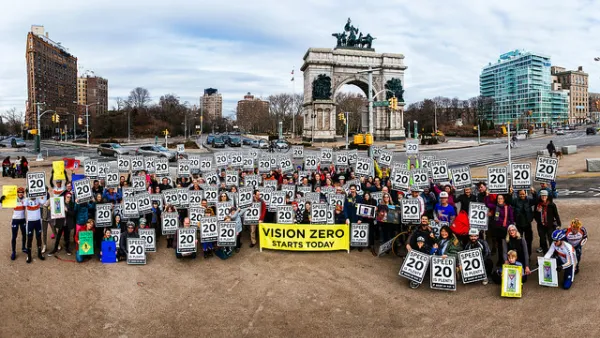The New York Times editorial board questions the priorities of a city that can support sports facilities with hundreds of millions of dollars in taxpayer funds but neglects its libraries.
An op-ed by the New York Times editorial board voices unequivocal support for the requests of New York's public libraries. Those requests, as listed by the op-ed:
"New York’s public libraries want about $1.5 billion from the city over the next 10 years so they can fix their buildings, which are old, crowded, falling apart or lacking in things they need to be useful in the 21st century, like electrical outlets. They also want more operating money, $378 million, up from about $320 million, to improve programs and services in the coming fiscal year and to stay open longer…"
The op-ed notes that library service hours are a "basic indicator of library-system vigor." On this measure, New York trails "Chicago, Los Angeles, Dallas, Phoenix, Philadelphia, San Antonio and San Diego. And the city’s suburbs. And Albany."
Though the libraries are privately run institutions, they depend heavily on public funds, and, according to the op-ed: "Keeping the sprawling system healthy is a core municipal responsibility."
FULL STORY: New York City’s Libraries Need Money

Planetizen Federal Action Tracker
A weekly monitor of how Trump’s orders and actions are impacting planners and planning in America.

Chicago’s Ghost Rails
Just beneath the surface of the modern city lie the remnants of its expansive early 20th-century streetcar system.

Amtrak Cutting Jobs, Funding to High-Speed Rail
The agency plans to cut 10 percent of its workforce and has confirmed it will not fund new high-speed rail projects.

Ohio Forces Data Centers to Prepay for Power
Utilities are calling on states to hold data center operators responsible for new energy demands to prevent leaving consumers on the hook for their bills.

MARTA CEO Steps Down Amid Citizenship Concerns
MARTA’s board announced Thursday that its chief, who is from Canada, is resigning due to questions about his immigration status.

Silicon Valley ‘Bike Superhighway’ Awarded $14M State Grant
A Caltrans grant brings the 10-mile Central Bikeway project connecting Santa Clara and East San Jose closer to fruition.
Urban Design for Planners 1: Software Tools
This six-course series explores essential urban design concepts using open source software and equips planners with the tools they need to participate fully in the urban design process.
Planning for Universal Design
Learn the tools for implementing Universal Design in planning regulations.
Caltrans
City of Fort Worth
Mpact (founded as Rail~Volution)
City of Camden Redevelopment Agency
City of Astoria
City of Portland
City of Laramie





























